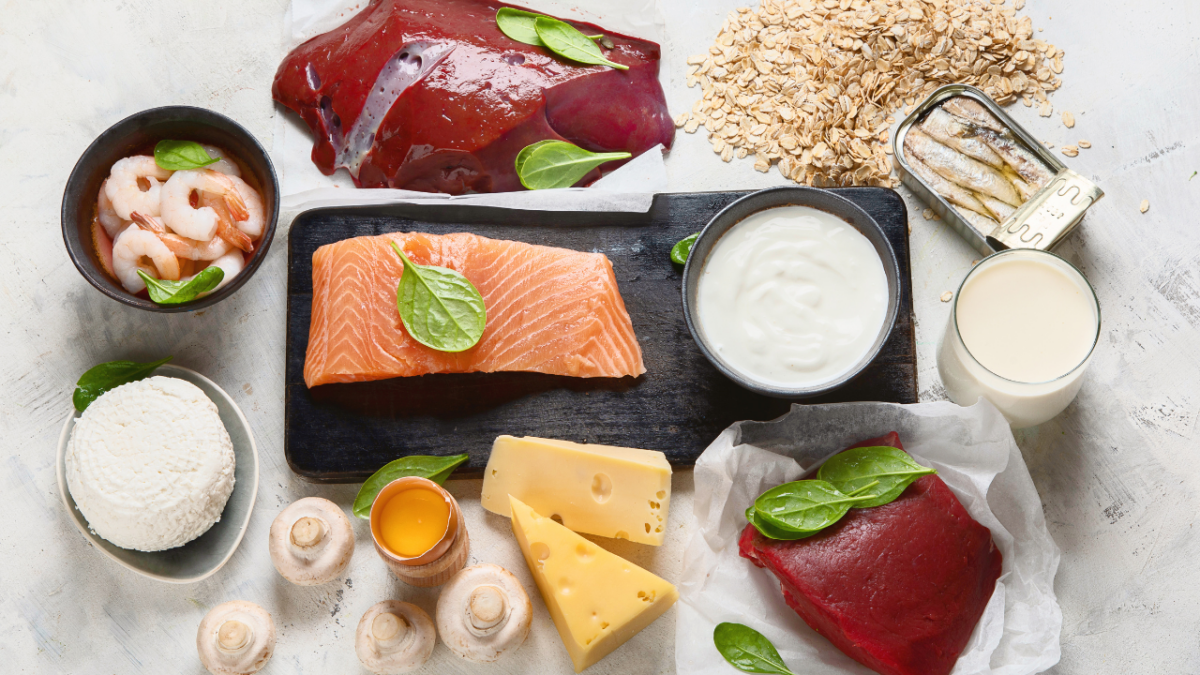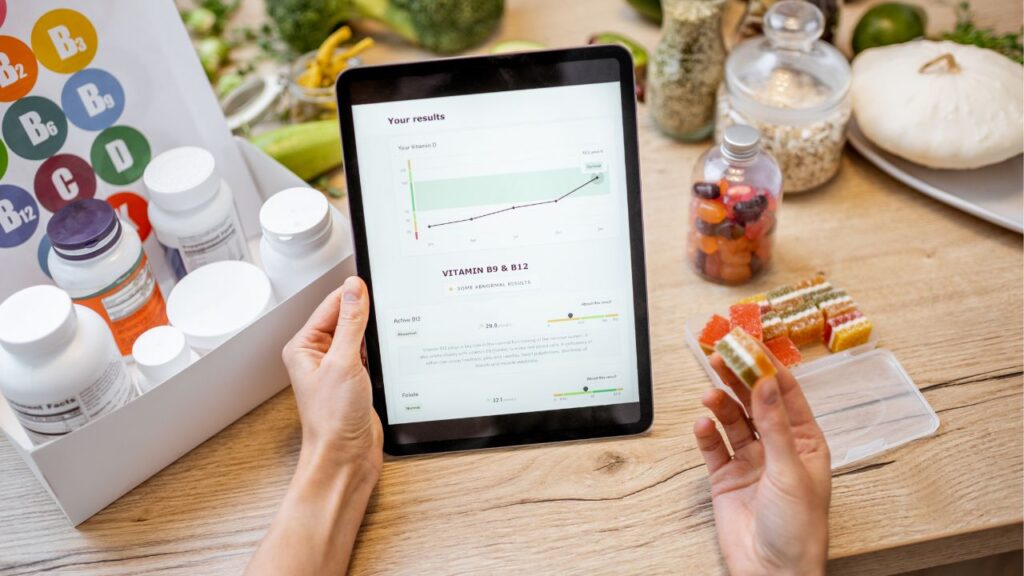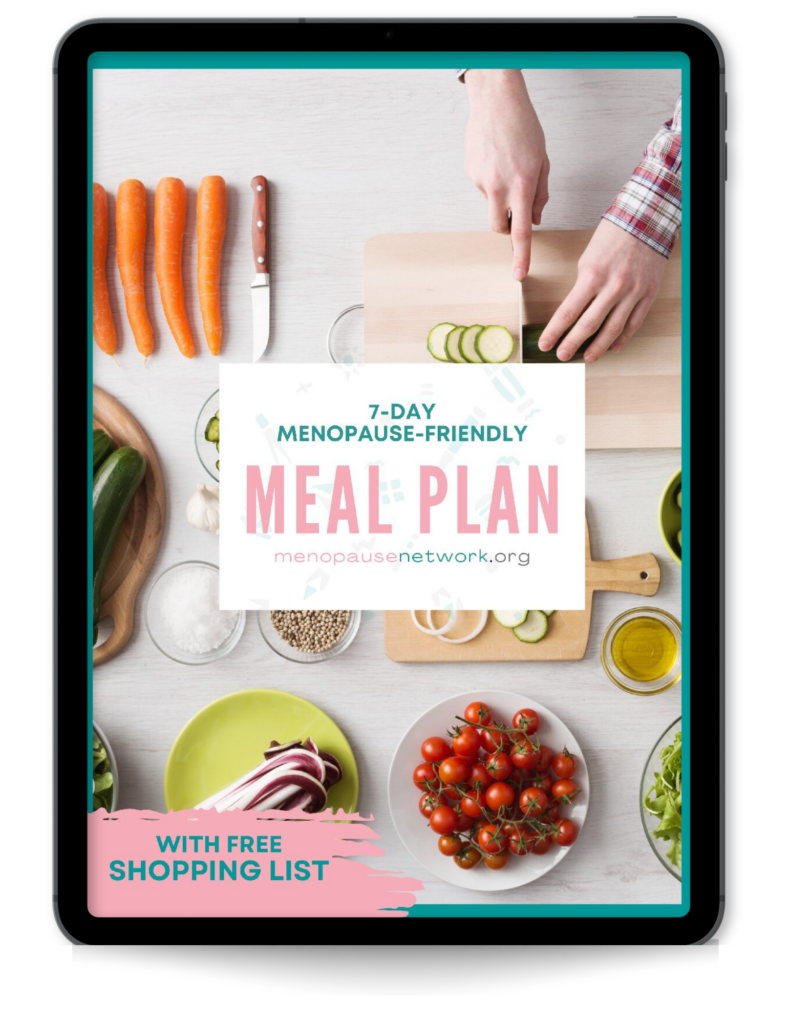Vitamin B12: The Menopause Sidekick You Didn’t Know You Needed
If menopause feels like a rollercoaster ride you didn’t sign up for, meet Vitamin B12 – the energy-boosting, mood-lifting, brain-fog-clearing superhero you didn’t know you needed. Let’s dive into what this vitamin can do for you and how to make sure you’re getting enough during this wild transition.
Why B12 Matters for Menopause
Hot flashes, sleepless nights, random forgetfulness (what’s the name of that actor again?), and low energy – menopause can feel like a never-ending game of whack-a-mole with your symptoms. While Vitamin B12 won’t replace your hormone therapy or knock out every symptom, it can support areas that need a little extra TLC, especially energy, mood, and cognitive function.
The Top Benefits of Vitamin B12 for Menopausal Women
1. Bye-Bye Fatigue:
When your estrogen dips, energy levels can tank. B12 helps the body produce red blood cells, which carry oxygen throughout your body. This gives your energy reserves a little pep in their step, keeping that afternoon slump at bay.
2. Brain Fog? B12’s Got Your Back:
Ever walk into a room and forget why? (We’ve all been there.) B12 plays a role in nerve health and cognitive function. Adding more of it to your diet may help keep the mental cobwebs under control.
3. Mood Swings Under Control:
Hormonal changes can sometimes turn you into an emotional whirlwind. B12 supports neurotransmitter production, which means it may help stabilize your mood and reduce those unexpected emotional rollercoasters.
4. Stronger Hair, Skin, and Nails:
Menopause can lead to changes in your hair and skin, but B12 plays a role in cell production, which keeps your hair shiny and your nails healthy.
How Do You Know If You’re Low on B12?
It’s common for menopausal women to be deficient in B12 – especially if you’re eating less red meat or dealing with digestive changes. Some telltale signs include:
- Persistent fatigue
- Brain fog or memory lapses
- Tingling or numbness in hands and feet
- Mood swings or depression
- Weak muscles
If these sound familiar, it might be time to get your B12 levels checked!
How to Get More B12 in Your Life
Through Food:
The easiest way to boost your B12 is through your diet. Some great sources include:
- Salmon and tuna
- Eggs
- Dairy products (cheese lovers, rejoice!)
- Beef and chicken liver (if you’re feeling adventurous)
- Fortified cereals
Through Supplements:
If your diet alone isn’t cutting it or you’re plant-based, B12 supplements or injections may be the way to go. Many women opt for sublingual B12 tablets (dissolved under the tongue) or oral capsules. Your doctor can help figure out what’s best for you.
Note: Use Vitamin B-12 with caution if you have any of the following conditions:
- Heart disease
- High blood pressure
- Cancer or a history of cancer
- Skin issues
- Gastrointestinal disorders
- Low potassium levels
- Gout
When to Talk to Your Doctor
While B12 is generally safe, too much of a good thing isn’t always helpful. If you’re considering supplements, it’s a good idea to chat with your healthcare provider to find the right dose and rule out any underlying conditions.
Wrapping it Up
Menopause is a journey (some might say an epic saga), but little helpers like Vitamin B12 can make the ride a lot smoother. Whether it’s fighting fatigue, sharpening your memory, or lifting your mood, this water-soluble vitamin is a powerful ally during the transition.





